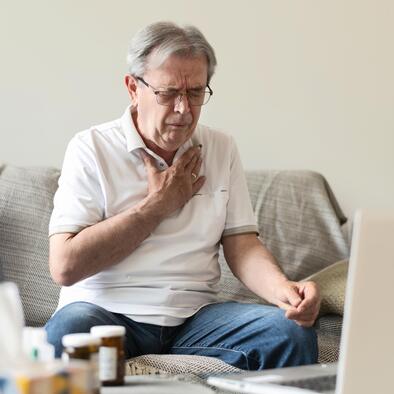Gastroesophageal reflux disease, commonly known as heartburn is the defect in the anti-reflux barrier at the junction of food pipe and the stomach, which allows acid from the stomach acid to come up the food pipe (the esophagus).
[the_ad id=”6085″]
This condition can affect the digestive tract. The most common symptom is heartburn; however, it may also cause persistent cough, inflammation of the food pipe, ulcers, and even cancer.
Management of this condition is done with the following approach:
- Reducing production of stomach acids
- Neutralizing excess stomach acids produced
- Position management to get help from gravity to reduce reflux
- Reducing pressure inside the stomach (or abdomen as a whole)
A wide range of medications are available for heartburn. They primarily aim at reducing stomach acid production. The quick relief ones mostly neutralize stomach acids. Medications like PPI (proton pump inhibitors commonly prescribed for heartburn) when taken for long, have some known side effects.
Here are some of the ways of tackling heartburn without medications.
Things to avoid:
- Consuming alcohol or sodas: The reason is obvious here. The acidic nature of alcohol and sugary sodas increases stomach acids (no a soda does not neutralize stomach acidity, if that’s what you believed!)
- Consuming caffeine especially in the evening (tea, coffee, chocolates): Consuming excess of fluids, in general, will increase abdominal pressure. Caffeinated drinks are worse due to their acidic nature and worse still if they also have sugar. Evening consumption is a no-no because most people have worse heartburns at night, when they lie down.
- Eating spicy, sugary, or fried/fatty foods: These are some of the known triggers and should be avoided.
- Eating acidic foods like tomatoes/fermented foods/soy sauce: Foods sour to taste are typically acidic in nature. Avoid excess salt as it triggers stomach acid production.
- Eating close to bedtime: Stomach acids are most active for the first couple of hours after eating meals. Going to bed in these 2-3 hours would mean lesser help from gravity and more reflux. Patients of heartburn are advised to eat dinner early.
- Eating large meals/overeating: Overeating not only triggers more acid secretion, the overall pressure in the stomach increases too. Both these factors worsen heartburn.
What you should do instead:
- Wearing loose clothes: This helps reduce pressure on the stomach.
- Drink sips of water when consuming meals and a glassful 30 minutes after meals: Some patients tend to consume a lot of water immediately after meals. This should be avoided; sips of water to moisten food while eating meals and a glassful 30 minutes after meals is recommended as per Ayurveda.
- Try limiting liquids after 9 p.m.: Helps reduce pressure on the valve that prevents reflux. (Does not mean one should remain thirsty).
- Eat the traditional Indian paan (tobacco-free) after dinner: It is a great acid neutralizer with additional benefits (eating paan aids digestion, prevents bloating, helps pass abdominal gas).
- Elevating the head side of the bed: Use beds that can be propped up, add wedges to the attress or simply add wooden blocks or bricks under the bedposts on the head side of the bed for elevation. This is a useful tip for pregnant women with acid reflux, who cannot follow diet restrictions and cannot be prescribed a lot of medication.
- Losing weight, if needed: Reduces pressure on the abdomen.
Remember, that these tips are not substitute to medical advice or medication; however, if followed religiously these time-tested tips help alleviate heartburn.

Dr. Mamta Lele- Pawara
(MD Ayurveda-Internal Medicine, CRAV-Kayachikitsa, MA Sanskrit)
